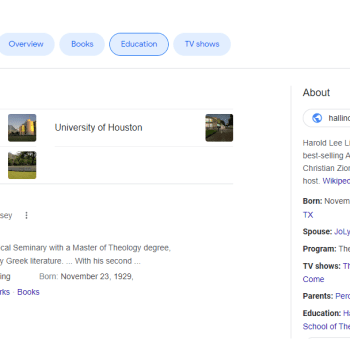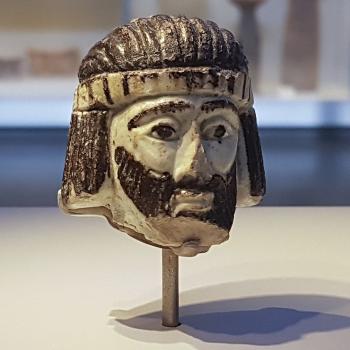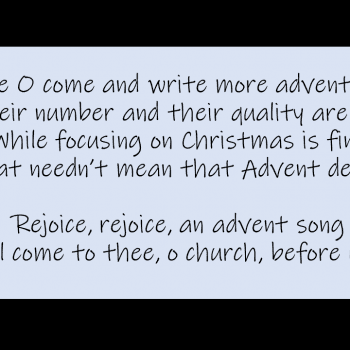I’ve blogged before about getting students to read texts as adults that they were previously exposed to as children. It often makes them acutely aware of the gulf between perceptions of what the Bible says and is they had growing up, and the reality of its contents. I’ve tended to use the stories of David and Samson to get at that point. Now, Fred Clark has done the same with Josiah. Here’s an extended excerpt. Click through to read the rest.
Our Sunday school versions of the story of Josiah had skipped past some of the more vivid details of Josiah’s zealous plans for reform:
Moreover, Josiah removed all the shrines of the high places that were in the towns of Samaria, which kings of Israel had made, provoking the Lord to anger; he did to them just as he had done at Bethel. He slaughtered on the altars all the priests of the high places who were there, and burned human bones on them.
Arch Books left that out of their chipper little rendition of this story, King Josiah and God’s Book. The toppling of the idols and of the idolatrous altars was considered good stuff for a children’s story, but the mass murder of the idolaters and their vengeful human sacrifice (!) wasn’t considered appropriate material even for the adult Sunday school classes.
Nor did we ever get into the stranger aspects of this story. Our version of the story always included the cheery promise made to Josiah at the end of 2 Kings 22. Because of his devotion to the rediscovered scriptures, and because he instituted the commemoration of Passover, God promised Josiah that “you shall be gathered to your grave in peace.”
But we left out the bit where that didn’t happen. The following chapter, 2 Kings 23, ends with Josiah riding out to meet the army of “Pharaoh Neco king of Egypt” and then matter of factly states that “when Pharaoh Neco met him at Megiddo, he killed him.”
Josiah’s “servants carried him dead in a chariot from Megiddo,” and brought him back to Jerusalem to bury him. I suppose in some technical, monkey’s paw sense, that might count as being gathered to his grave in peace. But it’s still unsettling.
And then it gets worse. Josiah’s oldest son becomes king but only serves for three months before Neco takes him captive and begins exacting tribute on Josiah’s conquered kingdom. The Pharaoh then installs Josiah’s younger son as a puppet king, a tool of Egypt.
The ending to this story is poetically horrifying. The righteous king Josiah devotes himself to God more than any other king of his people. And then the only king of Israel or Judah ever to keep Passover is killed by Pharaoh, who then makes Josiah’s son a captive in Egypt.
I don’t know what to make of that. The cruel irony of that is almost as difficult to contend with as the text-of-terror aspects of Josiah’s gleeful slaughter of the idolatrous priests.
To me, stories like this are a reminder that our Bible is an ancient book. If the past is a different country, then the ancient world is a different planet. The ancient stories of our Bible can be inscrutable, impenetrable, and bewildering. An important part of our task as modern readers, then, is to admit and accept that we are bewildered.
We don’t like to do that. We like to pretend that the Bible is as simple, tidy, “perspicuous,” and self-evidently clear in its meaning as our own Arch Books adaptations of it. It becomes merely a collection of stories like that children’s-book version of the story of Josiah — an anthology of facile fables with simple “morals” that no one would ever regard as unsettling or disturbing in any way.
Whatever else the Bible may be, it surely is not that.
Josiah is arguably one of the most important figures in the Bible, not because he finally obeyed commands everyone knew about but ignored up until he came along, but because he undertook a revolution in Judah, extending its control to Israel’s territories to the north, in the process promulgating stories about their shared heritage as a single people and the need for those in the north to worship only in Jerusalem that set in motion to creation of the Bible and of Judaism as we now know them.
See also:













